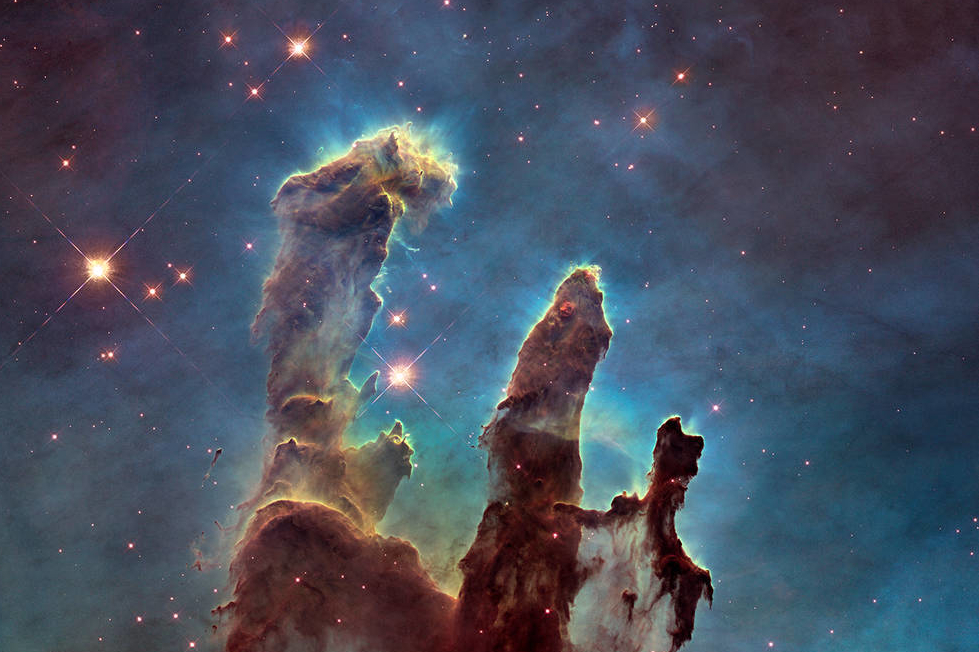“Forget your perfect offering. There is a crack in everything; that’s how the light gets in.” – Leonard Cohen
וְהָיָ֣ה ׀ עֵ֣קֶב תִּשְׁמְע֗וּן אֵ֤ת הַמִּשְׁפָּטִים֙ הָאֵ֔לֶּה וּשְׁמַרְתֶּ֥ם וַעֲשִׂיתֶ֖ם אֹתָ֑ם וְשָׁמַר֩ ה’ אֱלֹהֶ֜יךָ לְךָ֗ אֶֽת־הַבְּרִית֙ וְאֶת־הַחֶ֔סֶד אֲשֶׁ֥ר נִשְׁבַּ֖ע לַאֲבֹתֶֽיךָ
And if you do obey these rules and observe them carefully, your G*d ‘ה will maintain faithfully for you the covenant made on oath with your ancestors (Deuteronomy 7.12)
In our parashat hashavua we find the people of Israel inhabiting a liminal space, neither here nor there – much like any of us when we are preparing to step forward, across a threshold. It may happen multiple times in a lifetime, but each time is unique: once you take this step, you will be different. Life will be different.
And then there are the steps that you did not realize were fateful until you looked behind you. Parashat Ekev presents us an opportunity to sensitize ourselves to what these moments mean.
The people of Israel waits on the far side of the Jordan River, just as, forty years earlier, their parents and grandparents had waited at the Sea of Reeds. Mythologically, even earlier, our eponymous ancestor was waiting at the Yavok River. Jacob-turned-Israel received his name as a result of that night of struggle – the name of the river, “struggle” in Hebrew, carries the memory of it.
Each of these crossings through water is a hint of the birth of something new. But each also offers a challenge and, eventually, the scars of real human experience, that lessen us physically as they open us up past a childish certainty of self-sufficiency, toward what it means to live and grow.
Every year the book Devarim, Deuteronomy, bids us to slow down and listen. Not plot-driven but contemplative, this book reviews, considers and derives meaning. Note the promise made at our parashah’s beginning: if you observe, you will always find the covenant there for you.
Notice that this is not a promise that “everything will be all right.” Only that you will always be steadied by this framework of purpose and meaning if you consistently do it. The commitment to regular action leads to a certain wholeness even, and especially, in the face of brokenness – in oneself and in the world.
Hear, O Israel: life is a struggle. You will not emerge unscathed. But you will experience moments when you are standing at the shore of something new – no more certain than our ancestors were when they argued, according to the midrash, about who would go into the Sea of Reeds first, or when Jacob emerged from the River Yavok, limping into his life as Israel.
We as a people stand at the other side of the Jordan as we look toward the High Holy Days. In our brokenness and sadness – because that is what life brings – we need the seven weeks of consolation that we move through now, toward Rosh HaShanah and our yearly chance to appear before HaShem and account for our lives. Paradoxically, as Judaism has long taught, it is only through brokenness that we can begin to become whole.
Jacob limps because he is a mortal who has striven with God and one cannot emerge unscarred from such intense intimacy. He limps because mortals lack perfection and have their points of weakness (Achilles and Oedipus are two other well known examples.) He limps because scars are a language and this is the mark of chosenness [commemorated by Israel’s taboo against eating the sinew of the thigh of permitted animals.] He limps because of the cost of dreams, the cost of growing up….He limps while crossing, because even after prevailing in the struggle with the unfathomable he is still not exempt from fear on approaching the border of the Promised Land. He limps because this homecoming is temporary; another exile awaits him and his offspring in the future. – Ilana Pardes, The Biography of Ancient Israel
Life repeats its patterns generationally within a people, within families, within individual lives. “Once again, dear friends, into the breach!” We are invited by life itself to hold hands and prepare for the crossing, limping toward wholeness as we go.
